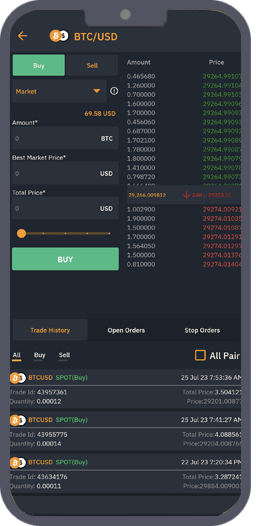SEC Crypto Broker Rules Face Overhaul: Chairman Atkins' Announcement

Table of Contents
H2: Key Aspects of Chairman Atkins' Proposed Overhaul
Chairman Atkins' proposed overhaul of SEC crypto broker rules targets several key areas, aiming to bring greater clarity and oversight to the previously murky world of digital asset trading.
H3: Expansion of Broker-Dealer Definition
The proposed changes significantly broaden the definition of "broker-dealer" under the Securities Exchange Act of 1934. This expansion explicitly includes crypto platforms facilitating transactions, regardless of whether they consider themselves traditional broker-dealers.
- This will dramatically increase the number of entities falling under SEC jurisdiction.
- Platforms previously operating in a regulatory gray area will face increased compliance burdens.
- The SEC aims to achieve greater investor protection through enhanced oversight and accountability. This includes stricter rules surrounding custody of digital assets and the handling of client funds.
H3: Enhanced Registration and Licensing Requirements
The announcement suggests a significant tightening of registration and licensing requirements for crypto broker-dealers. This means a much more rigorous process for obtaining and maintaining a license.
- Expect more stringent background checks for key personnel, focusing on financial integrity and history.
- Compliance with stringent capital adequacy rules will be paramount, ensuring platforms can withstand market volatility.
- Increased transparency and disclosure requirements will demand greater accountability to investors and regulators. This includes regular reporting of financial health and operational practices.
H3: Strengthened Anti-Money Laundering (AML) and Know Your Customer (KYC) Protocols
Combating illicit activities within the crypto space is a central aim of the proposed overhaul. This means stricter adherence to AML and KYC protocols.
- More robust identity verification processes will be needed for all users, potentially slowing down onboarding but enhancing security.
- Enhanced transaction monitoring and reporting will be critical, allowing for the detection of suspicious activity.
- Increased collaboration with domestic and international financial intelligence units will improve information sharing and enforcement.
H2: Potential Impacts of the Proposed Changes
The proposed changes will have far-reaching consequences across the cryptocurrency landscape.
H3: Increased Compliance Costs for Crypto Platforms
Adapting to the new regulations will significantly increase costs for crypto platforms, requiring substantial investments.
- Smaller platforms may struggle to meet these increased compliance costs, potentially leading to consolidation within the industry.
- Expect increased legal and consulting fees as platforms navigate the complexities of the new regulatory framework.
- The potential for a more centralized crypto market is a significant concern for those advocating for decentralization.
H3: Enhanced Investor Protection
While the cost burden is substantial, the proposed regulations aim to create a much safer investment environment.
- Reduced risk of fraud and manipulation due to increased oversight and transparency.
- Greater transparency regarding platform operations and financial health will allow investors to make more informed decisions.
- Improved mechanisms for investor redress could lead to faster and more efficient dispute resolution.
H3: Impact on Crypto Innovation
Some fear that overly stringent regulations could stifle innovation in the crypto industry.
- Overregulation could hinder the development of new crypto technologies and applications.
- Regulatory uncertainty may discourage investment, potentially slowing the overall growth of the sector.
- The SEC will need to strike a balance between investor protection and fostering innovation to ensure the continued growth of the crypto space.
H2: Industry Reactions to Chairman Atkins' Announcement
The announcement has sparked diverse reactions within the crypto industry.
H3: Support from Investor Advocacy Groups
Many investor protection organizations have welcomed the proposed changes, emphasizing the need for greater regulation in the often volatile crypto market. They believe that enhanced regulations are crucial to protect investors from fraud and manipulation.
H3: Concerns from Crypto Exchanges and Platforms
Several crypto exchanges and platforms have expressed concerns regarding the potential impact on their operations and the wider crypto ecosystem. Concerns focus primarily on the financial burden of compliance and the potential for hindering innovation.
H3: Ongoing Debate and Legislative Processes
The proposed changes are subject to public comment and further legislative processes. The final rules may differ substantially from Chairman Atkins' initial announcement, reflecting the ongoing debate and political considerations.
3. Conclusion:
Chairman Atkins' announcement regarding an overhaul of SEC crypto broker rules marks a critical juncture for the cryptocurrency industry. The proposed changes, aimed at expanding the definition of broker-dealers, strengthening licensing, and enhancing AML/KYC protocols, strive to bolster investor protection and combat illicit activities. However, the increased compliance costs and potential impact on innovation necessitate careful consideration. The ongoing debate and legislative processes will shape the final regulations. Staying informed about developments in SEC crypto broker rules is crucial for navigating this evolving landscape and protecting your investments. Understanding the complexities of crypto broker regulations and their impact on cryptocurrency regulation as a whole is essential for all stakeholders in the digital asset market.

Featured Posts
-
 Governor Issues Vehement Objection To Controversial Texas Muslim City Plan
May 13, 2025
Governor Issues Vehement Objection To Controversial Texas Muslim City Plan
May 13, 2025 -
 Olympus Has Fallen Exploring The Films Political Thriller Aspects
May 13, 2025
Olympus Has Fallen Exploring The Films Political Thriller Aspects
May 13, 2025 -
 Otkaz Ot Selfi Skarlett Yokhansson Obyasnyaet Svoyu Pozitsiyu
May 13, 2025
Otkaz Ot Selfi Skarlett Yokhansson Obyasnyaet Svoyu Pozitsiyu
May 13, 2025 -
 Why Did Investors Abandon Leveraged Semiconductor Etfs Before The Surge
May 13, 2025
Why Did Investors Abandon Leveraged Semiconductor Etfs Before The Surge
May 13, 2025 -
 Elsbeth Season 2 Episode 16 Release Date And Why The Delay On March 20th
May 13, 2025
Elsbeth Season 2 Episode 16 Release Date And Why The Delay On March 20th
May 13, 2025
